Today Current Affairs:24th June 2022 for UPSC IAS exams, State PSC exams, SSC CGL, State SSC, RRB, Railways, Banking Exam & IBPS, etc
Table of Contents
Four Species Of Azooxanthellate Corals:
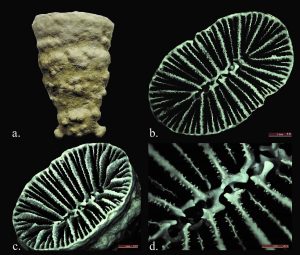
Scientists have recorded Four Species of Azooxanthellate Corals under the Genus Truncatoflabellum (Scleractinian: Flabellidae) for the first time from Indian waters.
Findings:
- Truncatoflabellum crassum, T. incrustatum, T. aculeatum, and T. irregulare are the four species of corals found.
- These groups of coral were previously found from Japan to the Philippines and Australian waters while only T. crassum was reported within the range of Indo-West Pacific distribution including the Gulf of Aden and the Persian Gulf.
- They are found from the Waters of Andaman and Nicobar Islands.
- They are Azooxanthellate corals, which are a group of corals that do not contain zooxanthellae and derive nourishment not from the sun but from capturing different forms of plankton.
- Zooxanthellae are unicellular, golden-brown algae (dinoflagellates) that live either in the water column as plankton or symbiotically inside the tissue of other organisms.
- Zooxanthellate corals, meanwhile, are restricted to shallow waters.
- They are hard corals and are not only solitary but have a highly compressed skeletal structure.
- There are about 570 species of hard corals found in India and almost 90% of them are found in the waters surrounding Andaman and Nicobar Islands.
- The pristine and oldest ecosystem of corals share less than 1% of the earth’s surface but they provide a home to nearly 25% of marine life.
- They are deep-sea representatives, with the majority of species reporting from between 200 m to 1000 m.
- They also occur in shallow coastal waters.
Rise In Heart Attacks:
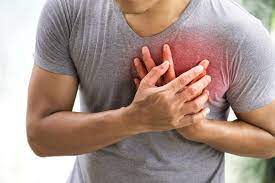
India’s financial capital Mumbai witnessed a six-fold rise in deaths related to heart attacks in the first six months of 2021 when the city was under the grip of the second wave of Covid-19.
Reason:
- Post-Covid development of thrombosis: SARS-Cov-2 damages the heart and blood vessels in infected patients which leads to the development of clots, heart inflammation, arrhythmias, and heart failure
- Thrombosis occurs when blood clots block veins or arteries
- Covid-19 can also cause microvascular damages, which may have also contributed to heart ailments
- Additional distress was noticed in during the pandemic: Anxiety and stress levels further added to the heart ailments.
- Delay in diagnosis of heart-related ailment amid the second wave: During the second wave, many patients avoided hospitals due to fear of contracting Covid-19, which further delayed life-saving treatment.
- Reperfusion therapies like Thrombolytic therapy (that dissolves clots) and timely interventions like angioplasty (the procedure used to widen blocked or narrowed coronary arteries) were delayed
- Better recording of heart-attack cases: since the start of the pandemic, medical practitioners are more conscious of segregation and bifurcation of types of deaths as well as maintaining better data related to heart attacks.
- Major lifestyle changes: Life has become more sedentary with fewer options for socialisation and physical activities
Doctors have witnessed an increase in the prevalence of diabetes, hypertension, smoking, alcohol use and an unhealthy lifestyle in the last two years. - Indians have a genetic predisposition, smaller coronary arteries, a diet pattern with excessive consumption of trans fats and a sedentary lifestyle that puts them in a high-risk category for heart attacks
Ruchira Kamboj: India’s Permanent Representative To The UN

Ruchira Kamboj has been appointed as the next Permanent Representative of India to the United Nations. She is currently Indian ambassador to Bhutan. Ruchira Kamboj will succeed T S Tirumurti. She is likely to take up assignment soon.
- Ruchira Kamboj joined the Indian Foreign Service in 1987
- She was All India women’s topper of 1987 Civil Services batch as well as topper of 1987 Foreign Service batch.
- She started her diplomatic journey in Paris, France. She was posted as the Third Secretary in Indian Embassy to France, during 1989-91.
- She has been Indian High Commissioner in South Africa, Permanent Representative of India to UNESCO in Paris, and Chief of Protocol in New Delhi.
- She also has past experience at the UN in New York.
- She was posted as Counsellor from 2002-2005, at Permanent Mission of India to the United Nations in New York.
- She dealt with several political issues, including UN Peacekeeping, Middle East crisis, UN Security Council Reform, etc.
Northern Ireland Protocol (NIP):
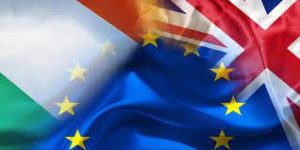
The Boris Johnson administration has come up with a new legislation, the Northern Ireland Protocol Bill, which would enable the U.K. to override provisions of the Brexit deal that concern trading arrangements in Northern Ireland the Northern Ireland Protocol (NIP).
- Northern Ireland is the only part of the U.K. that shares a land border with the EU, as the Republic of Ireland (or Ireland) is an EU member-state.
- As long as the U.K. was part of the EU, things were fine. But with Brexit, the U.K. exited the EU’s customs union.
- This created a problem whose solution needed two seemingly contradictory outcomes: preserving the sanctity of the EU’s single market, as well as that of the U.K.’s domestic market.
Northern Ireland Protocol (NIP):
- NIP’s solution was to avoid a customs check at the actual customs border on the island of Ireland, between Northern Ireland and Republic of Ireland as this would have violated the 1998 Good Friday Agreement and risked instability in a region.
- It instead shifted the customs border to that between Northern Ireland and Britain, effectively at Britain’s ports.
- As per the NIP, goods flowing into Northern Ireland would be checked at this ‘sea border’ before entering the island, and Northern Ireland would continue to follow EU rules in product standards.
- The main irritant for the U.K. in the current version of the NIP was the creation of “unacceptable barriers” to trade within the U.K. internal market between Great Britain and Northern Ireland.
- The European Union (EU) has said that the proposed law violates international law and has threatened to take legal action against the U.K. if it goes ahead with the legislation.
Inter-State Council Meeting:
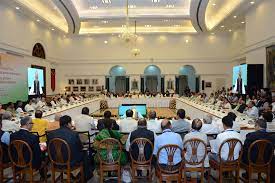
In June 2022, Tamil Nadu Chief Minister M K Stalin wrote to Prime Minister Narendra Modi, asking that at least three meetings of the Inter-State Council should be held every year to “strengthen the spirit of cooperative federalism”.
- Inter-State Council is a mechanism that was constituted “to support Centre-State and Inter-State coordination and cooperation in India”.
- The Council is basically meant to serve as a forum for discussions among various governments.
- The Inter-State Council was established under Article 263 of the Constitution, which states that the President may constitute such a body if a need is felt for it.
- In 1988, the Sarkaria Commission suggested the Council should exist as a permanent body, and in 1990 it came into existence through a Presidential Order.
- The main functions of the Council are inquiring into and advising on disputes between states, investigating and discussing subjects in which two states or states and the Union have a common interest, and making recommendations for the better coordination of policy and action.
- The Prime Minister is the chairman of the Council, whose members include the Chief Ministers of all states and UTs with legislative assemblies, and Administrators of other UTs.
- Six Ministers of Cabinet rank in the Centre’s Council of Ministers, nominated by the Prime Minister, are also its members.
- Since its constitution in 1990, the body has met only 11 times, although its procedure states it should meet at least three times every year.
- That there has been no meeting since July 2016.
- The Council was reconstituted in May 2022.
- The body will now have 10 Union Ministers as permanent invitees, and the standing committee of the Council has been reconstituted with Home Minister Amit Shah as Chairman.
Payment Vision 2025: RBI
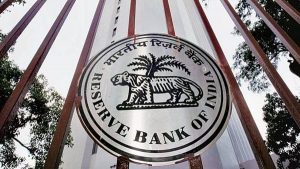
The Reserve Bank of India (RBI) has come out with “Payments Vision 2025” with an objective to provide every user with safe, secure, fast, convenient, accessible and affordable e-payment options.
- Payments Vision 2025 has been prepared by considering the guidance from the Board for Regulation and Supervision of Payment and Settlement Systems of the RBI.
- It builds on the initiatives of Payments Vision 2019-21.
- The Payments Vision 2025 document is presented across the five anchor goalposts of Integrity, Inclusion, Innovation, Institutionalisation and Internationalisation.
- Theme: E-Payments for Everyone, Everywhere, Everytime (4Es).
Deletion Of 111 Registered Unrecognised Political Parties : Election Commission
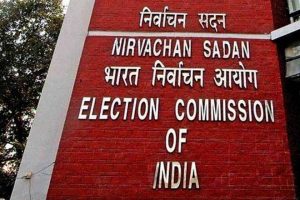
The Election Commission ordered the deletion of 111 registered unrecognised political parties that it found to be “non-existent” and referred three of the parties to the Department of Revenue for legal action for “serious financial impropriety”.
- This was the second such action in the recent past against registered parties that have been found violating the Representation of the People Act, 1951.
- Earlier, the EC had deleted 87 non-existent registered unrecognised political parties.
- The EC said the 111 parties in question had violated sections of the Act that required them to submit their address of communication and any change in address to the EC.
Registered Unrecognised Political Parties (RUPP):
- Either newly registered parties or those which have not secured enough percentage of votes in the assembly or general elections to become a state party, or those which have never contested elections since being registered are considered unrecognised parties.
- Such parties don’t enjoy all the benefits extended to the recognised parties.
Recognised Political Party:
- A recognised political party shall either be a National party or a State party if it meets certain laid down conditions.
- To become a recognised political party either at the state or national level, a party has to secure a certain minimum percentage of polled valid votes or certain number of seats in the state legislative assembly or the Lok Sabha during the last election.
- The recognition granted by the Commission to the parties determines their right to certain privileges like allocation of the party symbols, provision of time for political broadcasts on the state-owned television and radio stations and access to electoral rolls.
UNESCO’s King Hamad Bin Isa Al-Khalifa Prize : Central Institute Of Educational Technology:
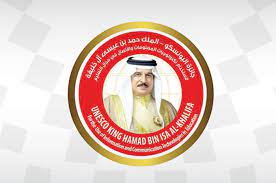
Central Institute of Educational Technology (CIET) wins UNESCO’s King Hamad Bin Isa Al-Khalifa Prize for the year 2021.
- CIET is a constituent unit of National Council of Educational Research and Training (NCERT) under Department of School Education & Literacy.
- CIET has been awarded by United Nations Educational, Scientific and Cultural Organization (UNESCO) for use of ICT in Education under a comprehensive initiative called PM eVIDYA.
UNESCO’s King Hamad Bin Isa Al-Khalifa Prize:
- It is established in 2005 with the support of the Kingdom of Bahrain.
- This award “recognizes innovative approaches in leveraging new technologies to expand educational and lifelong learning opportunities for all, in line with the 2030 Agenda for Sustainable Development and its Goal 4 on Education.
- The Prize rewards individuals and organizations that are implementing outstanding projects and promoting the creative use of technologies to enhance learning, teaching and overall educational performance in the digital age.
- Awards: An international Jury selects two best projects annually.
- Each prizewinner receives USD 25,000, a medal and a diploma during the ceremony at UNESCO Headquarters in Paris.
Twin Deficit Problem:

The finance ministry in its ‘Monthly Economic Review’ cautioned the re-emergence of the twin deficit problem in the economy, with higher commodity prices and rising subsidy burden leading to an increase in both fiscal deficit and Current Account Deficit (CAD).
- It’s also the first time the government has explicitly talked about the possibility of fiscal slippage in the current fiscal year.
- The World is looking at a distinct possibility of widespread stagflation.
- India, however, is at low risk of stagflation, owing to its prudent stabilization policies.
- Meanwhile, Indian financial markets have witnessed hefty foreign investment outflows the past eight months. A weak GDP growth outlook has exacerbated the situation.
- In a black swan event comprising a combination of shocks, there is a 5% chance of outflows under portfolio investments of 7.7 %of GDP and short-term trade credit retrenchment of 3.9 %of Gross Domestic Product (GDP).
- The twin deficit problem, especially the worsening current account deficit, may compound the effect of costlier imports, and weaken the value of the rupee thereby further aggravating external imbalances.
Manipur’s Keibul Lamjao National Park (KLNP) Residents Oppose The Site’s Relocation:

People argues that the proposed site has no connection with efforts to save the endangered deer.
- On the other hand, the people in surrounding villages have been doing everything possible to protect the deer.
Keibul Lamjao National Park:
- It is the only floating National Park in the world, the Keibul Lamjao National Park located on the Loktak Lake is the last natural habitat of the ‘Sangai’ (Rucervus eldii eldii), the dancing deer of Manipur.
- This is the last natural habitat of the brow-antlered deer (Sangai) the dancing deer of Manipur.
- In the 1950s, it was believed that the brow-antlered deer(Rucervus eldii eldii) had become extinct in the country. However, it was subsequently re-discovered in Manipur.
- Hog Deer, Otter, a host of water fowls and migratory birds are found here.
- Loktak Lake is the largest freshwater lake in Northeast India and is famous for the phumdis floating over it.
- Phumdis are the heterogeneous mass of vegetation, soil and organic matter at various stages of decomposition.
- This ancient lake plays an important role in the economy of Manipur. It serves as a source of water for irrigation, drinking water supply and hydropower generation.
- Considering the ecological status and its biodiversity values, Loktak lake was initially designated as a wetland of international importance under the Ramsar Convention in 1990.
- Later it was also listed under the Montreux Record in 1993.
- Human activity has led to severe pressure on the lake ecosystem.
Black Death:

In the journal Nature in June 2022, researchers have claimed that the Black Death one of the deadliest epidemics in the history of humankind originated in modern day northern Kyrgyzstan around 1338-1339 nearly 7-8 years before it ravaged large parts of the world.
- The term Black Death refers to the bubonic plague that spread across Western Asia, Northern Africa, Middle East and Europe in 1346-53.
- The Black Death was caused by bacterium Yersinia pestis and was spread by fleas that were carried by rodent hosts.
- The microorganism Y. pestis spread to human populations, who at some point transmitted it to others either through the vector of a human flea or directly through the respiratory system.
- Symptoms: Researchers often described the buboes (hard, inflamed lymph nodes) as the distinguishing clinical feature.
- The onset of symptoms was followed by intense fever and vomiting of blood.
- After the initial infection, most victims died within 2-7 days.
- It is commonly believed that the term Black Death gets its name from the black marks that appeared on some of the plague victims’ bodies.
- Around 60-65 per cent of Europe’s population or 52 million people died due to the plague.
- A dramatic reduction in population was accompanied with huge economic and social changes in Europe.
- With a smaller labour force available, wages went up, leaving ordinary people with a higher economic surplus.
- The Black Death also led to an increase in religious persecution of the Jews, who were blamed for spreading the contagion.
Aviation Turbine Fuel:

Oil marketing companies (OMCs) hiked Aviation Turbine Fuel (ATF) prices by 16.3% on June 16, taking jet fuel prices to a record high of Rs 1.41 lakh per kilolitre in Delhi.
- The record increase in ATF prices, combined with the depreciating rupee, is set to increase the cost of operations for airlines, which could lead to an increase in air fares by up to 15%.
- The cost of ATF constitutes up to 50% of the cost of operations for airlines in India that are already struggling due to the high cost environment and lower fares in the country.
- The airline industry had sought respite from high fuel prices through a cut in excise duty on ATF or by bringing jet fuel under GST, that would have brought down prices and also allowed airlines to claim input credit tax on the GST paid.
- While bringing ATF under GST seems unlikely for now, the Aviation Ministry had requested the Finance Ministry to reduce excise duty on jet fuel by 2 percentage points to 9 per cent. The Finance Ministry, however, did not cut any taxes on ATF.
- Jet fuel or aviation turbine fuel (ATF, also abbreviated avtur) is a type of aviation fuel designed for use in aircraft powered by gas-turbine engines.
- It is colorless to straw-colored in appearance.
Section 295A:

The debate surrounding the comments by BJP spokespersons Nupur Sharma and Naveen Jindal have put the spotlight on the law that deals with criticism of or insult to religion.
- India does not have a formal legal framework for dealing with hate speech. However, a cluster of provisions, loosely termed hate speech laws, are invoked. These are primarily laws to deal with offences against religions.
- Provisions in the Indian Penal Code (IPC), primarily Section 295A, define the contours of free speech and its limitations with respect to offences relating to religion.
- Section 295A defines and prescribes a punishment for deliberate and malicious acts, intended to outrage religious feelings of any class by insulting its religion or religious beliefs.
- Section 295A is one of the key provisions in the IPC chapter to penalise religious offences.
- The state often invokes Section 295A along with Section 153A of the Indian Penal Code, which penalises promoting enmity between different groups on grounds of religion, race, place of birth, residence, language, etc, and doing acts prejudicial to maintenance of harmony.
- Section 295A was brought in 1927. The amendment was a fallout of an acquittal under Section 153A of the IPC by the Lahore High Court in 1927 in Rajpaul v Emperor, popularly known as the Rangila Rasool case.
- Rangila Rasool was a tract brought out by a Hindu publisher that had made disparaging remarks about the Prophet’s private life.




